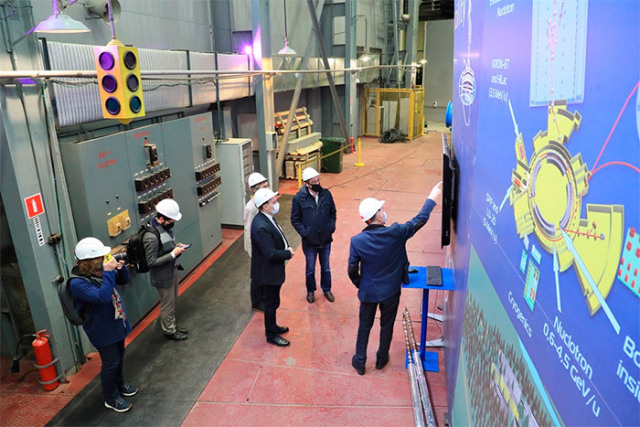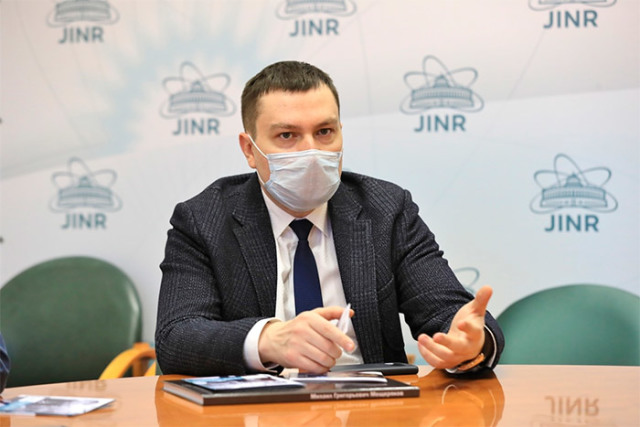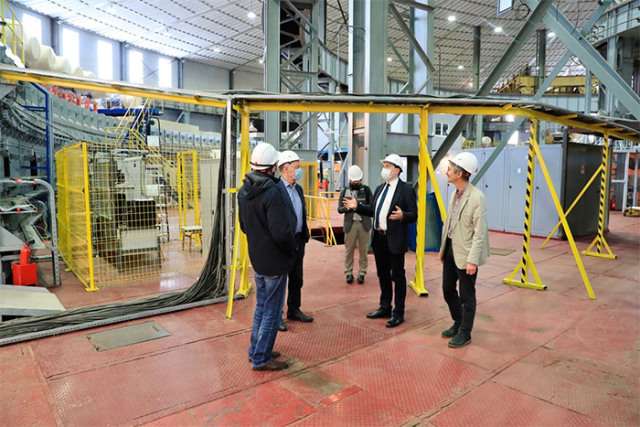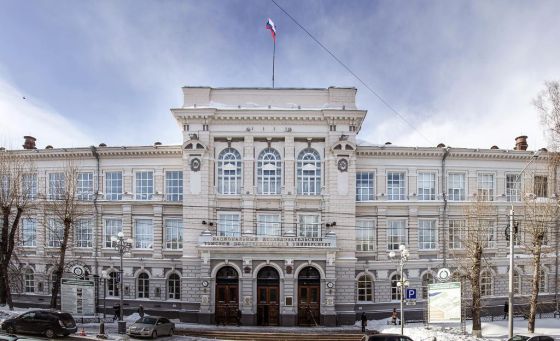Acting Rector of Tomsk Polytechnic University Andrey Yakovlev and Head of the NTI Competence Center "New and Mobile Energy Sources" at the Institute of Chemical Physics of the Russian Academy of Sciences (Chernogolovka) Yuri Dobrovolsky paid a working visit to the Joint Institute for Nuclear Research (JINR) in Dubna last Friday.
It is the largest international scientific center, which is managed by a committee of representatives of 18 participating countries. Here they met with the management, scientists of the institute and got acquainted with the work on the creation of the NICA accelerator complex. Tomsk Polytechnic University and the NTI Competence Center in the Science city of Chernogolovka-partners in the scientific and technological consortium"Hydrogen Technology Valley".
In Dubna, the guests met with the Director of JINR, AcademicianBy Grigory Trubnikov. In the laboratories of the institute, they were presented with the work of one of the most powerful supercomputers in Russia - Govorun, as well as the cases and detectors of the future NICA mega-installation. This complex, scientists hope, will allow us to understand how protons and neutrons were formed in the first moments after the Big Bang in the Universe.
During the visit, the guests also got acquainted with educational initiatives and projectsJINR and discussed possible cooperation in the field of hydrogen technologies.
Joint Institute for Nuclear Research (JINR)
International intergovernmental research organization in the science city of Dubna, Moscow region. The founders are 18 JINR member States. The main areas in which the Institute's researchers work are nuclear physics, elementary particle physics, and condensed matter research. The JINR synthesized all the transuranic elements of the periodic table of chemical elements discovered in the USSR and Russia, and repeated the synthesis of most of the transuranic elements discovered in other countries.
The Institute oversees the creation of the NICA accelerator complex in Dubna. It is one of six draft class magicians in Russia. Construction of the complex began in 2016, the first launch of the collider with incomplete intensity is planned for 2022.



Photo: the press service of the JINR

